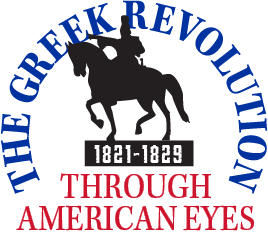IV. The “Greek Question” As An Issue of U.S. Foreign Policy
A1. A Letter from the Marquis de Lafayette to Rufus King
(Robinson, pp. 47–48) La Grange, November 10, 1822
My Dear Sir:
Public papers of the several European countries are very proper channels to convey information which composed together by an experienced statesman may give him an adequate idea of the situation of affairs. But I know you are not insensible to the pleasure of hearing from another person, and old friend, who shall ever be more heartily attached to you.
The politics of Europe are critical; a Congress at Verona has afforded some signs of mis. understanding between two great powers. Russia feels she has been over complaisant for the theories of the Sainte Alliance, when in opposition to her eastern interests; Great Britain is endeavoring to obtain the confidence of Spain, the Commerce of South America and an influence over that very Greece where she has protected, if not encouraged, Ottoman cruelty and barbarity. The passions of the governing power in France misled their policy in every point; yet something has already issued from the deliberacions among the several representatives of privilege which the defenders of right will not wait long to know; in the meanwhile a late success of Mina against the troops of the Regency of Urgel has very timely dampened the sanguine hopes of the Counter Revolutionary party.
The actual leaders of Constitutional government in the Peninsula are not yet reconciled I will say to the idea of South American Independence, due to the unpopularity attending its acknowledgment. Saving that great error, their conduct is patriotic, spirited and of much importance to the liberties of Europe. They, of course, have the wishes of all liberal men on this side of the Atlantic.
So have the Greeks to the highest degree, and when I think that two ships of the line, or three or four large frigates, and a loan of some money should insure their Independence, I lament that such assistance be withheld from them; Loans have been found among Capitalists for objects less momentous; Just what will be done at Verona with respect to the new Grecian Republic we do not yet know; but have rejoiced to hear the American flag has appeared on those seas, altho' only on board a frigate and small vessels and con- sider the United States as the only dis-interested patronage which might insure their real freedom.
Be pleased, my dear Sir, to present my affectionate regards to all the family and believe me for ever,
Your most sincere friend,
LAFAYETTE
(Hatzidimitriou 195-196)
Source: Constantine G. Hatzidimitriou, Founded on Freedom and Virtue: Documents Illustrating the Impact in the United States of the Greek War of Independence, 1821-1829 (New Rochelle, New York: Aristide D. Caratzas, 2002).
